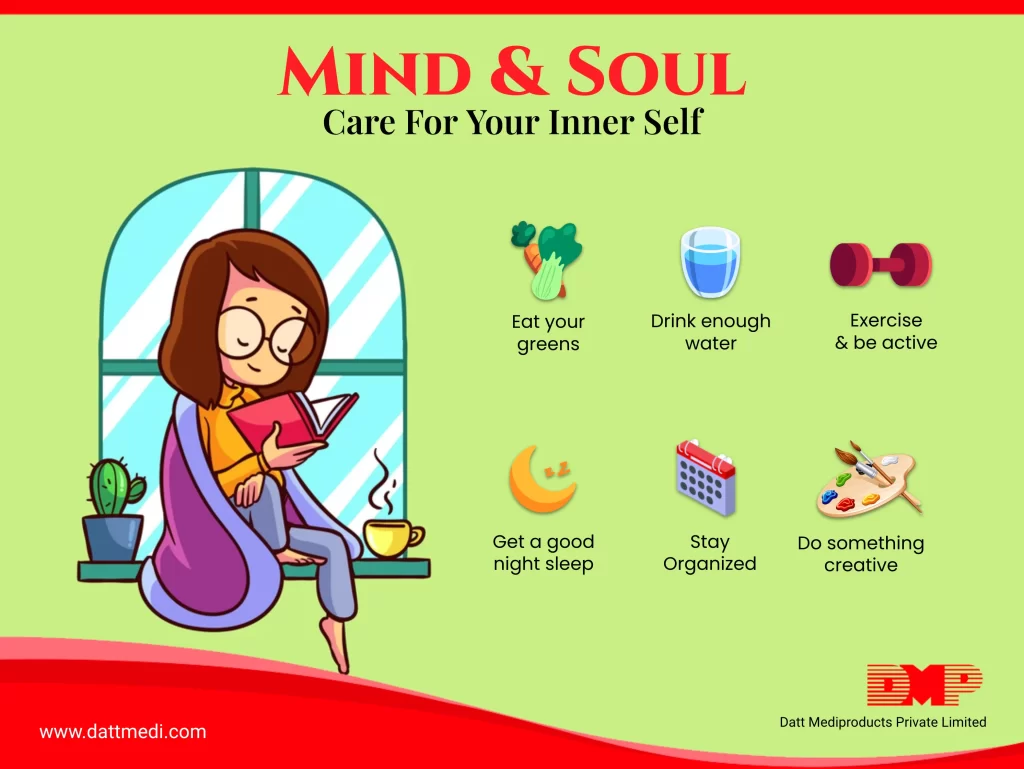
Self-care is simply taking care of yourself. It doesn’t mean you become selfish or neglect your loved ones. It means you become more self aware, of your needs, requirements and you are less stressed when you take care of others.
We often overlook the importance of Self-care but it is extremely necessary to take out time for yourself. It’s not an easy task, as most of us are busy in our daily routines, office work, technology, it becomes really hard to spare a Me-time and it’s always last on our agenda.
To practice Self-care can be a challenging job. It’s predominant to understand that self-care is not only limited to our physical self, it also encompasses our inner health. With self-care we take care of our mind, body, and soul everyday and not just when we are actually sick.
Self-care makes you healthier, happier and resilient.
Its importance & Benefits
Better productivity.
When you start making time for things that are more important, your goals become clearer and you become more focussed in life, are able to concentrate on work effectively with better productivity.
Better resistance power to diseases.
Indulging in a self care routine activates the parasympathetic nervous system (PNS), making our body rejuvenate itself, thereby boosting our immune system.
Improved physical health.
With a fortified immunity, your body can better ward off common colds, flus, fever, upset stomachs making you more physically strong inside and out.
Enhanced self-esteem.
When you start saying “No” to the unwanted things and start focussing on meeting your own needs, a positivity flows in your subconscious state, discouraging negative thoughts and paying more attention to your critical inner voice, and intrinsic values.
Increased self-knowledge.
When we practice self-care, we try to figure out what matters the most to us, what we feel passionate and inspired about and we have better self understanding. Who knows we discover some hidden talent or prioritize an abandoned hobby for betterment.
Care for your Physical Health and Inner Self
Exercising regularly:
Exercising makes you stay healthy both physically and mentally. It doesn’t always have to be a fancy complicated gym workout. Even a simple routine of walking, climbing stairs, biking can do wonders by releasing stress-relieving hormones and improving your general health.
Eating healthy foods
lowers the risk of catching chronic illnesses, improves your mood and stabilizes the energy levels.
Getting enough sleep:
A sound sleep of 7-9 hours is important as it rejuvenates the cells, calms the mind, helps make memories and discards the unnecessary information, ultimately maintaining your physical and mental health.
Avoiding use or misuse of drugs and alcohol:
Another important aspect of self-care is avoiding substance abuse which ultimately helps to manage your stress levels along with your physical self.
Practicing relaxation exercises:
Relaxation techniques help clear your mind, relieve stress, and calms the mind. You may choose anything from deep breathing techniques, yoga or meditation.
We understand Self-care is often misunderstood and is thought to be possible for people with enough time and money. But this is not the case. We can incorporate simple healthy self-care practices in our daily life that can have lasting benefits. Self Care boosts our confidence, self-esteem, helps balance work and life, manages stress and a better physical self.
So, Start Living, Stop Existing!




